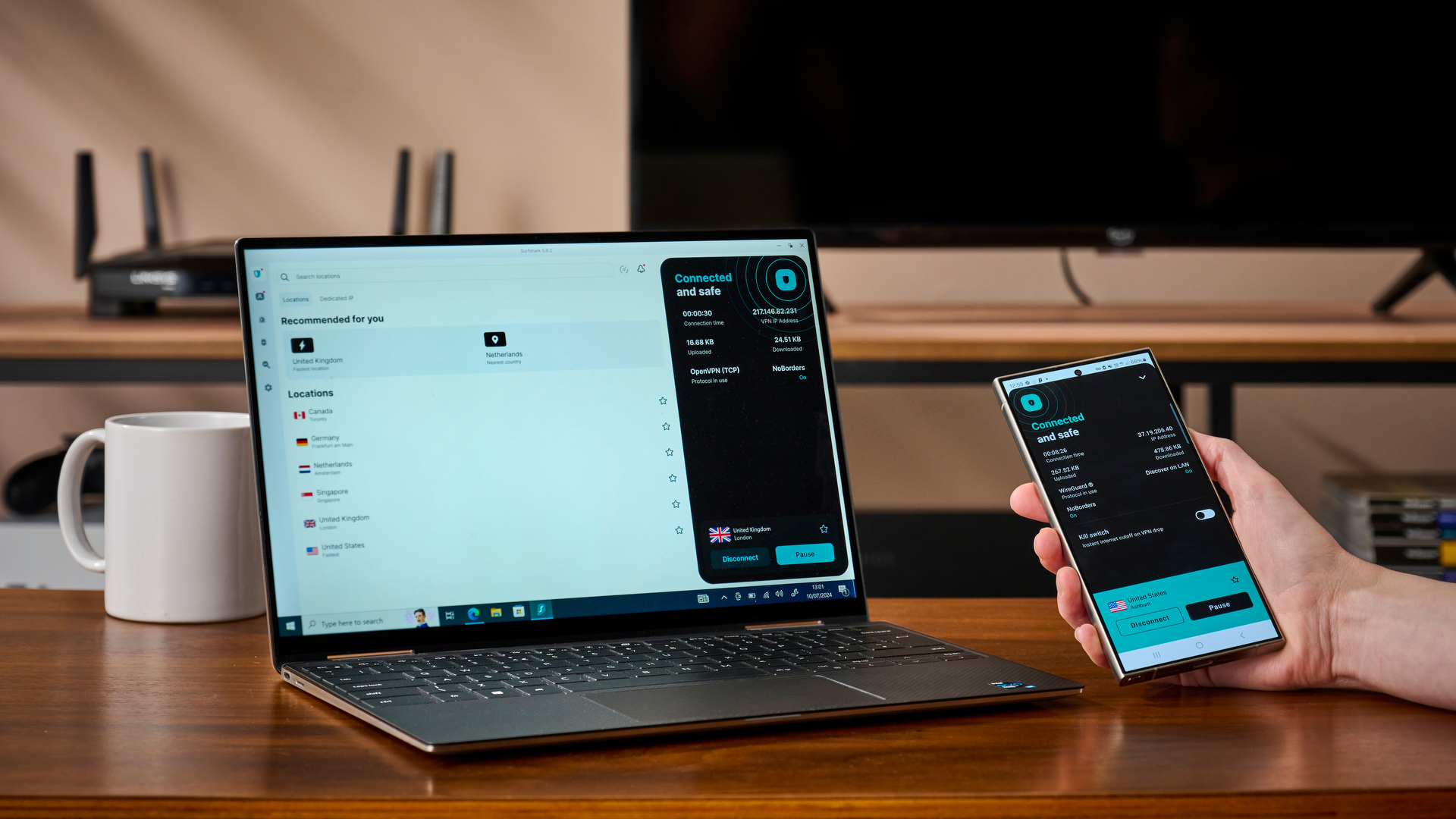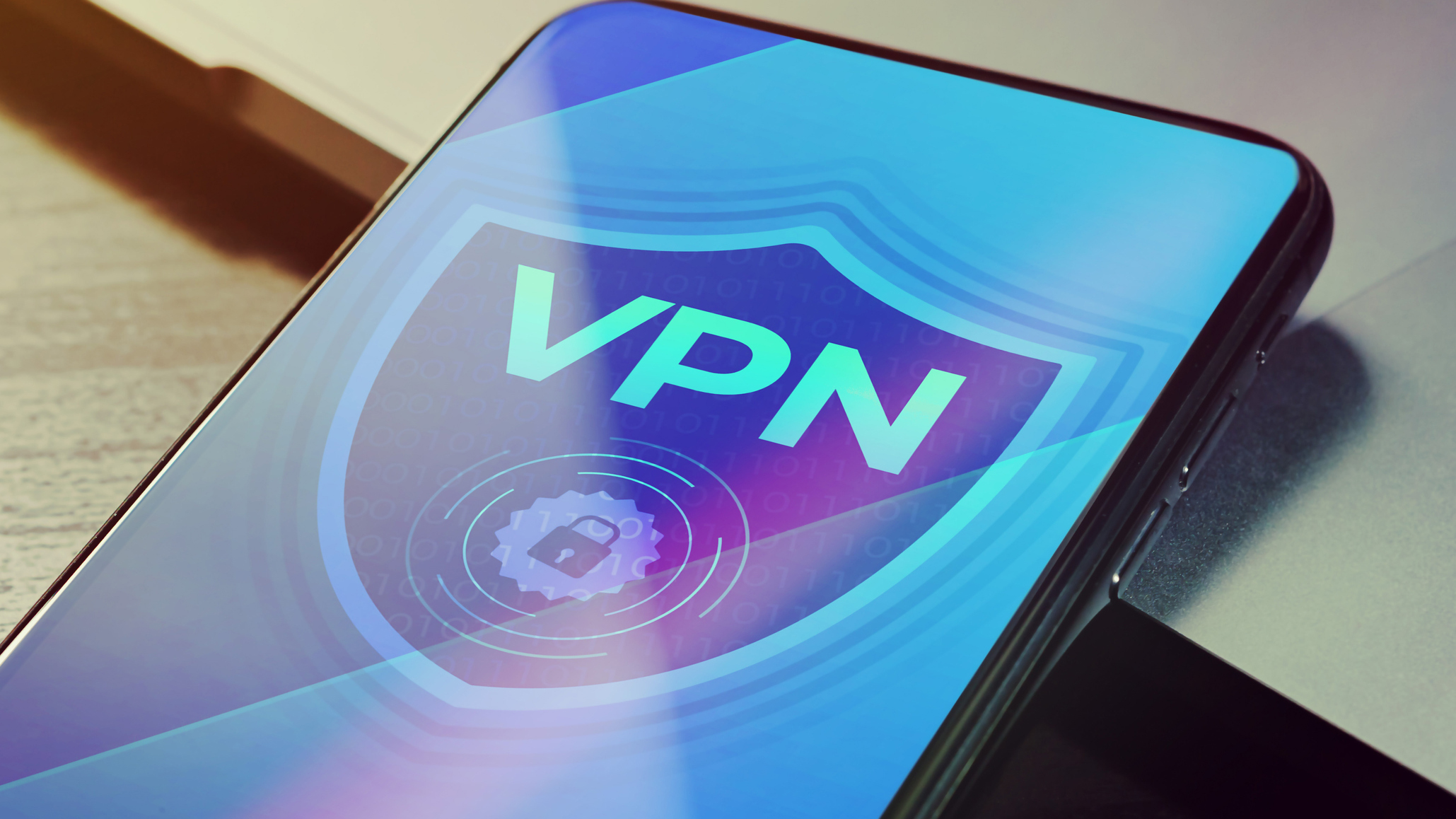
We take the business of putting VPNs through their paces seriously here at TechRadar, which is why we regularly re-test today's best VPNs to ensure that all of our information and advice is up to date. One of the services we recently reevaluated is Surfshark – and it didn’t disappoint.
Our best cheap VPN impressed with easy-to-use apps and a flawless record of unblocking streaming platforms, but really stole the show when it came to performance. Surfshark had previously claimed the top spot in our fastest VPN rankings and, after our newest round of tests, continues to lead the pack.
So, what does that mean for you – the day-to-day user? Keep reading, and I'll explain how Surfshark's blazing speeds benefit your everyday browsing.
Why is speed important?
So, before we dive into the details, you might be wondering why it matters if your VPN is “fast” or not.
Your VPN acts as an intermediary between your device and the wider internet, encrypting your traffic as it passes back and forth between the two. So, anything you do online, your VPN is doing too – and a VPN with sluggish speeds won’t be able to handle resource-intensive tasks.

Want to learn more about how we put VPNs through their paces? Head on over to our VPN testing methodology page for the inside scoop.
The good news is that Surfshark absolutely aced our most recent round of speed tests (and head on over to our VPN testing methodology page to learn more about how we put VPNs through their paces). Using the WireGuard protocol, we recorded speeds of over 950 Mbps – maxing out our connection line and putting Surfshark squarely at the top of our overall speed rankings.
Let’s put that into perspective. Internet speeds of 100 Mbps are considered average, whereas anything over 200 Mbps is particularly speedy – and what you’ll need to keep a multi-user household browsing, streaming, and gaming simultaneously. Surfshark’s result of 950 Mbps blows these numbers out of the water, so no matter what you get up to online, Surfshark can keep up without slowing you down.
Easy breezy browsing
VPNs have an important job to do – they encrypt your traffic, passing it through a secure VPN server before it travels out to the wider internet, making it unreadable to any third-party snoopers. This gives your digital privacy a massive boost, which is awesome, but nobody wants it to come at the cost of performance, right?
With Surfshark, you can connect to a server in your home country if your primary concern is shoring up your security. However, if you want to connect to an overseas server to spoof your location, Surfshark can route your traffic around the world in the blink of an eye, too, without massively impacting your speed.
In fact, during our tests, we tested Surfshark’s performance when connecting to a US server from our UK base – and still saw peak WireGuard speeds of over 950 Mbps. There was no significant dip in performance, underscoring Surfshark’s overall reliability, which is exactly what you want from a service you’ll be using every day.
In a nutshell, Surfshark is more than quick enough to keep up with your browsing. Whether you're checking out what’s new on social media, joining the conversation on Reddit, or getting stuck in to work for the day – you won't be slowed to a crawl in the name of enhanced online security.
Smooth HD streaming
This is a big one. Tons of people use today's best Netflix VPNs to make the most of their subscriptions.
Sites like Netflix serve up different content to folks in different regions, all thanks to licensing agreements, which means that someone in the US will have access to a totally different library of content than someone in the UK.

Wondering where Surfshark lands in our overall unblocking rankings? Check out our guide to the best streaming VPNs for the details.
Simply connect to a VPN server overseas, however, and you'll fool the site into thinking that you're physically located in the same place, too. Then, you'll have access to that country's content library. Easy!
Some folks rely on free VPNs to unblock their favorite platforms – but they're just not cut out for it. They often lack the unblocking power and sheer speed to keep up with streams.
Generally, you’ll need internet speeds of at least 5 Mbps to enjoy HD content and 25 Mbps to stream in 4K smoothly – anything less than this might result in grainy picture quality and near-constant buffering. It’s also worth remembering that if several people are connected to several devices at the same time, your need for speed will increase, and you’ll need a more robust performance.
With Surfshark clocking in at a whopping 950 Mbps, however, you’ll have no trouble unblocking and tuning in to shows, movies, live streams, and more – and won't have to worry about any buffering or low-quality pictures ruining the vibe, either.
Uninterrupted gaming
If you're on the hunt for a reliable gaming VPN (whether you're hopping into matchmaking lobbies or logging in to your favorite MMO for the day), Surfshark has your back.
For the smoothest gaming experience, you’ll want internet speeds of at least 50 to 100 Mbps – the faster, the better.
It’s important to understand that, thanks to the encryption process, any VPN will impact your gaming. High-speed VPNs like Surfshark, however, ensure that unwanted side effects like jitter are kept to a minimum – which could make all the difference if you’re duking it out in Fortnite or Tekken 8.
You need internet speeds of at least 50 to 100 Mbps for the smoothest gaming experience
Simply put, jitter is the measurement of your ping and whether it’s fluctuating massively. The bigger the fluctuation, the more risk there is of data packets arriving late, impacting your gameplay, and causing increased latency (delay between hitting a button and the action playing out on your screen).
Surfshark will assign you a shiny new IP address when you connect to a server, making it much harder for any sore losers to target you with a DDoS attack. You can even take advantage of Surfshak's globe-spanning server network to check out the best region-specific gaming deals and bag a bargain.
Lightning-fast downloads
P2P file sharing is a handy way to swap large files in the blink of an eye – but it's not without its risks. You’re effectively exposing your IP address to the public, and in danger of downloading dodgy files, which is why it's important to invest in a solid torrenting VPN.
Surfshark's speeds ensure that your downloads will cross the finish line in a flash – so you don't spend more time watching the progress bar than actually enjoying the thing you're trying to download.
Surfshark's speeds ensure that your downloads will cross the finish line in a flash
However, there are a few factors that influence the overall speed of your downloads. These include the maximum download speed you can expect from your internet service provider (ISP) – and the maximum speed of the seeder’s connections (as well as how many seeders are available in the first place).
The bigger the file, the longer the download time – and using a VPN to secure the transaction can add extra time to this total.
In my opinion, the extra boost of digital privacy is well worth the sacrifice. Surfshark's suite of security-boosting tools also protect you from crafty bad actors and anyone trying to trace your activity back to you. Tough encryption renders your online activity unreadable, and a reliable kill switch will cut your internet access if Surfshark's connection drops for any reason, preventing accidental data leaks.
Then, there's also the fact that Surfshark abides by an audited no logs policy – so you can rest assured that the provider isn't keeping tabs on what you get up to or what you download, either.
Does a VPN slow you down?
If you've been researching VPNs, you may have come across claims that they really grind your browsing speeds to a halt. The honest truth is that VPNs do impact your speeds – but that impact should only ever be marginal.
Encrypting your traffic is an involved process, after all. Your VPN routes your traffic through a secure server before it goes on to the internet – and this extra step can cause some nominal slowdown. It's a pretty good tradeoff, in my opinion, and today's speediest services can be left to do their thing in the background without any noticeable impact.
If you want to optimize your VPN speeds, however, there are a few things to keep in mind. Firstly, you'll want to connect to a server as close to your actual location as possible, so your data doesn't need to travel as far. Then, it's worth switching up your VPN protocol and using WireGuard if you aren't already. It’s more lightweight than OpenVPN, as it's made up of fewer lines of code, which translates to better performance, a smoother browsing experience, and less frustration.







